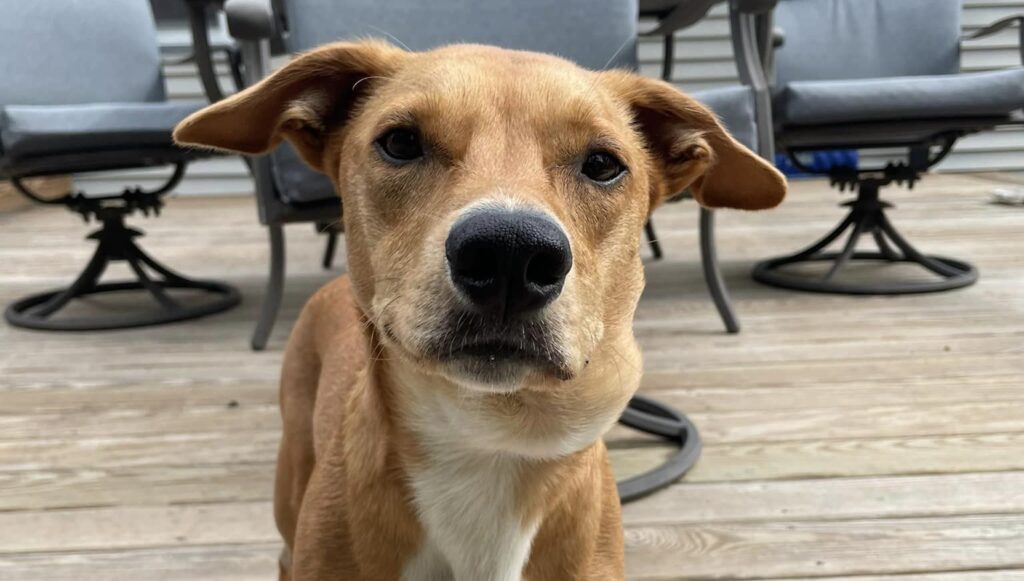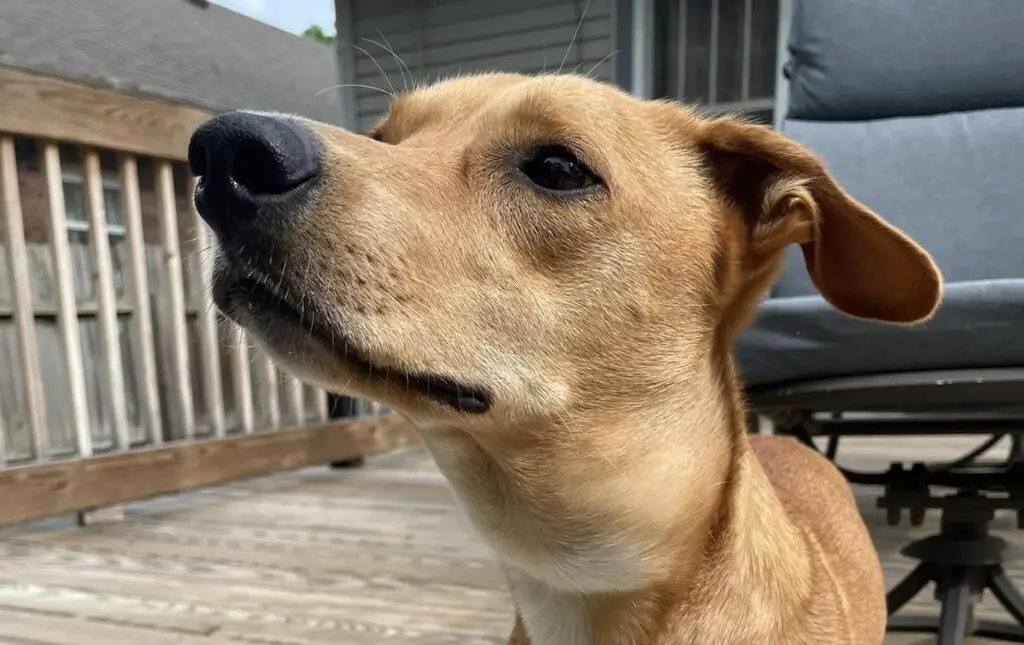A reactive lymph node in dogs is a symptom of an underlying disease or condition. It may be caused by bacterial, viral, or fungal infections and can also develop as a result of tumors or cancer.
In some cases, it may be the first sign that something is wrong with your pup’s health.
This blog post will discuss what a reactive lymph node is and the signs of a reactive lymph node in dogs.
Key Takeaway
- A reactive lymph node in dogs is a lymph node that has become enlarged or swollen due to an active immune response, often as a result of infection, inflammation, or injury.
- A reactive lymph node in dogs is caused by the body’s immune response to an infection, inflammation, or injury, leading to enlarged or swollen lymph nodes.
- Symptoms of a reactive lymph node in dogs can include vomiting, coughing, lethargy, fever, poor appetite, and an enlarged abdomen.
What Is a Reactive Lymph Node In Dogs?

A reactive lymph node in dogs is an enlarged lymph node due to inflammation or infection.
This increase in size, also known as reactive lymphadenopathy, can occur due to various causes including bacterial, tick-borne, fungal, and parasitic infections.
Reactive lymph nodes reflect the activity of the node as part of a local or general immune response when antigens, in sufficiently high concentration, reach the draining lymph node and stimulate the immune system.
Most of the time, reactive lymph nodes are not harmful and do not indicate anything serious.
They are not caused by an infection or cancer within the lymph node itself and often get better on their own.
See also: How To Check a Dog’s Lymph Nodes
What Causes a Reactive Lymph Node In Dogs?

- Bacterial Infections
- Viral Infections
- Fungal Infections
- Parasitic Infections
- Tick-Borne Diseases
- Allergic Reactions
- Immune System Disorders
- Cancer
- Trauma or Injury to the Lymph Node
- Systemic Inflammatory Response Syndrome (SIRS)
- Autoimmune Diseases
See also: Can Dog Lymph Nodes Be Removed?
Symptoms of Reactive Lymph Node in Dogs
- Vomiting
- Coughing
- Lethargy
- Fever
- Poor Appetite
- Enlarged Abdomen
- Loss of Appetite
- Weight Loss
- Increased numbers of lymphoblasts in the lymph nodes
- Evidence of increased drainage from tissue, indicated by the presence of numerous phagocytic cells within the medullary sinuses (sinus histiocytosis)
Are Reactive Lymph Nodes In Dogs Serious?
Reactive lymph nodes in dogs are not typically serious as they represent an immune response, often triggered by an infection or injury, causing the lymph nodes to swell.
While this can be a cause for concern, reactive lymph nodes are usually not dangerous.
Most of the time, they are not indicative of any severe condition such as cancer within the lymph node itself.
Instead, they demonstrate that the dog’s immune system is actively working to combat an issue.
However, if the lymph nodes remain swollen for a prolonged period or are accompanied by other concerning symptoms like vomiting or coughing, it’s advisable to consult with a veterinarian.
See also: What Do Dog Lymph Nodes Feel Like?
Can Reactive Lymph Nodes In Dogs Turn Into Cancer?
Reactive lymph nodes in dogs can turn into cancer but this is very uncommon.
Reactive lymph nodes in dogs usually indicate an immune response to something happening in the body, such as an infection or inflammation, and are typically not harmful.
They are not caused by an infection or cancer within the lymph node itself. However, in rare instances, swelling of lymph nodes may be associated with cancer.
Some types of cancer, like non-Hodgkin lymphoma, Hodgkin lymphoma, and acute lymphocytic leukemia, can originate in the lymph nodes.
See also: Can Dogs Lymph Nodes Swell From Allergies?
How Do You Treat Reactive Lymph Nodes In Dogs?
Treatment for reactive lymph nodes in dogs is largely dependent on the underlying cause.
Here are some common treatments:
- Antibiotics: If a bacterial infection is causing the lymph nodes to react, antibiotics may be prescribed to treat the infection.
- Antifungals: These are used if a fungal infection is the source of the issue.
- Anti-inflammatories: These can help reduce inflammation and swelling in the lymph nodes.
- Steroids: These may be used to manage symptoms and reduce inflammation.
- Surgery: In some cases, if the lymph node or surrounding tissue is severely affected, surgery may be an option.
- Chemotherapy or Radiotherapy: In rare cases where the reactive lymph node is due to cancer, more aggressive treatments like chemotherapy or radiotherapy may be needed.
How Long Can Reactive Lymph Nodes In Dogs Last?
Reactive lymph nodes in dogs can last anywhere from a few days to 6 weeks.
The duration of reactive lymph nodes in dogs can vary depending on the underlying cause triggering the immune response.
Often, after an infection has passed, a lymph node or group of nodes that reacted to the infection can remain enlarged for months.
This condition is referred to as reactive adenopathy. If a dog’s lymph nodes remain swollen for an extended period or continue to grow larger, it is recommended to consult with a veterinarian.
Can Reactive Lymph Nodes In Dogs Be Permanent?
Reactive lymph nodes in dogs are not typically permanent. They often enlarge due to an immune response, such as fighting off an infection or inflammation, and tend to return to their normal size once the triggering issue is resolved.
However, in some cases, lymph nodes may remain swollen long after the initial cause has disappeared.
This is generally not a cause for concern unless the lymph node changes hardens, or grows very large.
While it’s possible for a dog to live with a reactive lymph node, the prognosis largely depends on the underlying cause.
FAQs
Q: What are lymph nodes?
A: Lymph nodes are small, bean-shaped structures found throughout the body. They play a critical role in the immune system by filtering lymph fluid and helping to fight off infections.
Q: What is lymphadenopathy?
A: Lymphadenopathy is a general term used to describe the enlargement of lymph nodes. It can be caused by various factors, including infections, immune system disorders, and cancer.
Q: How are swollen lymph nodes in dogs diagnosed?
A: To diagnose swollen lymph nodes in dogs, a veterinarian may perform a physical examination, conduct blood tests, take a fine-needle aspiration of the lymph node for cytology, or recommend further imaging tests like ultrasound or biopsies.
Q: What is the treatment for swollen lymph nodes in dogs?
A: The treatment for swollen lymph nodes in dogs depends on the underlying cause. It may involve medications such as antibiotics or antifungals for infections, anti-inflammatory medications for inflammation, or chemotherapy for cancer.
Q: What is lymph node cytology?
A: Lymph node cytology involves the microscopic examination of cells from a lymph node to determine the cause of enlargement. It helps in diagnosing infections, cancer, or other abnormalities.
Q: Where are lymph nodes located in dogs?
A: Dogs have lymph nodes located throughout their body, including in the neck, armpits, groin, and behind the knees.
Q: What can cause swollen lymph nodes in dogs?
A: The cause for swollen lymph nodes in dogs can be infections, allergies, autoimmune diseases, tick-borne illnesses, and various types of cancer.
In Conclusion
In conclusion, reactive lymph nodes in dogs are nothing to be overly concerned about as they tend to be mostly harmless and can often just go away on their own.
However, if your dog continues to experience swollen lymph nodes for an extended period of time, it is important to contact a veterinarian for further examination.





Leave a Reply